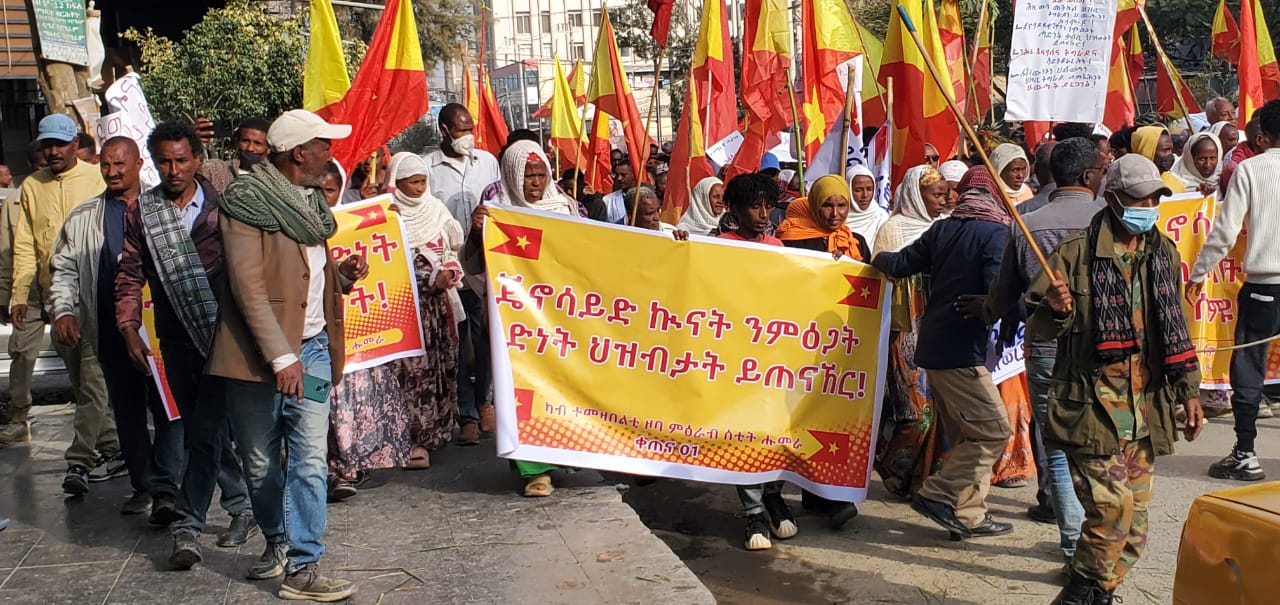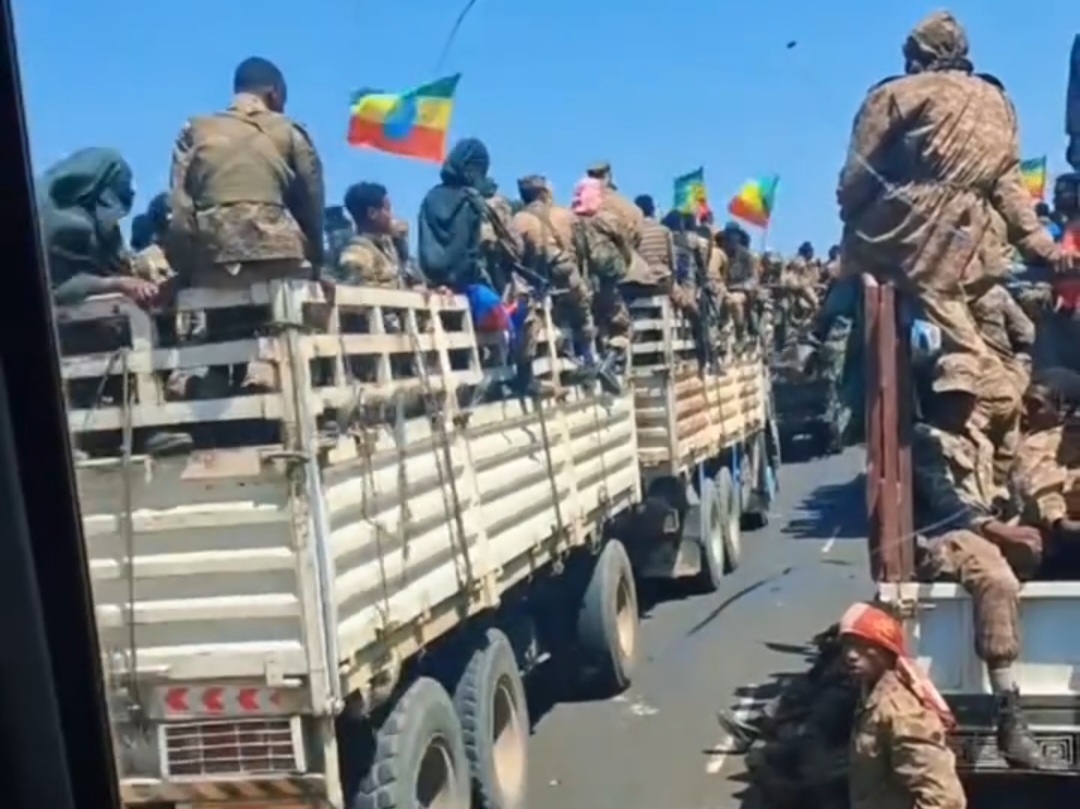By HANA-MARIAM TESHOME
Eritrean Refugees in Ethiopia are calling on the United Nations (UN) and all other concerned international rights organisations, to intervene on the ongoing unprecedented mass crackdown of Eritrean refugees by the host nation, Ethiopia.
The wave of arrests of Eritrean refugees in Ethiopia’s capital, Addis Ababa, has sparked fear within the Eritrean refugee community, with many fearing for their safety amid the ongoing mass crackdown.
According to reports, hundreds of Eritrean refugees in Ethiopia have been arrested in recent weeks.
Targeting refugees and asylum seekers across the capital, the arrests occur as tensions between Ethiopia and Eritrea continue to rise.
Most Eritrean refugees fled their own nation to escape political repression and a mandatory military service.
The Red Sea nation, a country sometimes dubbed as the ‘North Korea of Africa’ because of its ultra-repressive regime, men and women are subject to unlimited military services.
For those Eritreans who managed to escape the pariah Eritrean nation, many of them have already experienced severe hardships in their search for safety, hence Eritrea has a shot to kill policy for any citizen who attempts to escape via the borders.
Yet Ethiopia’s mass arrests appear to be another worrisome for those desperately fleeing Eritreans.
“Eritrean refugees are been arrested in mass in recent days in public places, including as while out on foot, at coffee shops, and even from their homes” an Eritrean Refuge who sought anonymity told The East African Daily.
Another anonymous refugee described experience of attempting to visit detained relatives but was denied access as he was informed by prison officials that such visits were prohibited.
“Last week, my two younger brothers were taken into custody from the condominium where they reside.I was denied access to visit them when I tried to bring them food and clothes.”
The Ethiopian Human Rights Commission declared it would investigate the arrests in response to the concerning reports.
In addition to the 70,000 Eritrean refugees already officially registered in Ethiopia, over 20,000 Eritreans have crossed borders to Ethiopia this year.
By arresting and detaining Eritrean refugees, Ethiopia is violating its obligations under the 1951 Refugee Convention and its 1969 Organization of African Unity (OAU) Convention, both of which mandate the protection of refugees from refoulement, arbitrary detention, and mistreatment.
Such actions by the Ethiopian government not only does it violate Ethiopia’s international obligations but also undermined the rights of refugees seeking protection to escape violence and repression at their own country.
The Ethiopian government’s crackdown sends a dangerous message that refugees are not to be protected, disregarding their fundamental rights to security and dignity.
The UN refugee agency (UNHCR) told BBC that it had received reports of Eritrean refugees being detained and expressed deep concern over the matter.
Refugees are getting increasingly desperate, with many seeking alternative ways to leave Ethiopia. But there are reports that Eritreans have even been arrested while attempting to inquire about the travel documents they need to leave.
The arrests have highlighted broader concerns about Eritrean refugees’ safety across Ethiopia.
At Alemwach refugee camp in the Amhara region, refugees speak of frequent robberies, kidnappings, and physical assaults by armed groups.
“Some refugees have been shot, while others have been stabbed for their belongings, like mobile phones. At least nine refugees have been killed in the past year,” said a representative from the camp.
Some refugees are drawing parallels to the mass arrests and deportations of Eritreans during the 1998–2000 war between the two countries, when thousands were forcibly expelled from Ethiopia.
Ties between Ethiopia and Eritrea have deteriorated once again following the 2022 Pritoria peace deal that ended a two-year civil war in Ethiopia’s northern Tigray region.
Flights and phone lines between the two countries have been suspended, and diplomatic contact between their leaders has ceased.
Eritrean refugees in Ethiopia are calling on the international community, particularly the UN and rights organisations, to intervene on the ongoing mass crackdown of Eritrean refugees.



